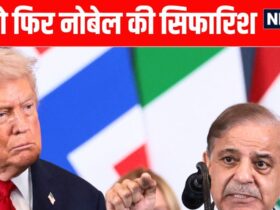In the Democratic Republic of Congo, one of the leaders of the M23 rebels threatened to overthrow the government of President Félix Tshisekedi this week, shortly before a new round of talks in Qatar. Kinshasa responded by reiterating its confidence in the strength of its national army.
Rebels who have seized control of large parts of North Kivu and South Kivu provinces in eastern DR Congo have reportedly deployed more than 7,000 new recruits to the area.
More than 9,000 people had completed their training, according to a statement from the group last week.
Overthrowing a ‘bad regime’ or sabre-rattling?
At a graduation ceremony for new fighters in Chanzu, North Kivu province, General Sultani Makenga, a senior military leader of M23 and its allied groups, announced the rebels’ determination to overthrow the “bad regime” in Kinshasa.
However, experts say this growing sense of fencing may simply be a means of trying to exert influence over the ongoing peace talks, which are set to resume this week.
“This threat from the rebels is nothing new,” says Onesphore Ssematumba, an analyst with the International Crisis Group for the eastern Congo region, though he adds that “overthrowing the government remains a long-term goal of the rebel coalition”.
According to Yvonne Muya, a researcher at the School of Conflict Studies at St. Paul University in Ottawa, Canada, both the rebels and the government are trying to strengthen their respective positions in the upcoming talks by doubling down on their aggressive statements:
“Each side strategically maintains its position. Sometimes by sharpening its weapons, literally and figuratively,” Muya told DW.
Alex Vines, head of the Africa program at the London-based Chatham House think tank, believes the rebels’ threat should not be taken seriously:
“The M23 regularly threaten to overthrow Felix Tshisekedi’s government in Kinshasa, but the reality is that they do not have the capacity or the logistics supplies to advance on Kinshasa,” Vines told DW.
“It’s all political posturing, I wouldn’t take it too seriously.
Sharp statements in response to Kabila decision
Meanwhile, Sematumba also cited the recent conviction in absentia of former President Joseph Kabila as another reason for the heated rhetoric, which he believes will have a lingering impact on the upcoming Doha talks:
“Joseph Kabila’s conviction is likely to disrupt the Doha process and trigger a renewed large-scale war with unpredictable consequences,” Sematumba told DW.
Last week, a Congolese military court found former President Kabila guilty of high treason and war crimes, and sentenced the former leader to death.
The former president, who ruled the resource-rich Central African country from 2001 to 2019, was also found guilty of glorifying crimes, plotting and allegedly planning a coup.
The charges relate to the former president’s role in the ongoing conflict between the government and the M23 militia, which captured large areas in the eastern part of the country earlier this year.
Kabila lives in exile, reportedly in South Africa, and has denied the allegations. however,
DRC: ‘No playground’
For President Tshisekedi’s Union for Democracy and Social Progress (UDPS) party, the threat of a takeover by the M23 militia appears to be of little concern: Christian Lumu Lukusa, a senior UDPS member, told DW that “President Tshisekedi will never be overthrown by remotely controlled puppets from Kigali or elsewhere,” widely acknowledged Referring to allegations that support is given to rebels. Government of Rwanda.
Lukusa further stressed, “As far as their alleged reinforcements are concerned, they should know that DR Congo is no playground.” He further said that while the government and military are on stand-by, the people of the DRC are also determined to “put an end to all this nonsense”.
Muya says he regrets that the rhetoric from both sides is reminiscent of the verbal competition that is more common in an active military context rather than in the context of a peace process.
Muya estimates, “This is still the situation today because, as we can see, the conflict continues. Protagonists often try to strengthen their positions at the negotiating table.”
peace talks at an impasse
However, negotiations remain at an impasse in the meantime, according to Henry-Pacific Myla, a researcher at the Ebuteli Institute and coordinator of the Kivu Security Barometer.
Given the failure of both sides to make progress in talks, Mayala believes it is all a case of much ado about nothing:
“Since military logic has never been ignored in the strategy of both sides of the conflict, I am more confident that the current status quo will persist for a long time than that the balance of power will be reversed,” he told DW.
“Or that there will be further advances from areas already controlled by the M23 insurgency.”
Jean-Noel Ba-Mwez contributed to this article from Kinshasa
Edited by: Serton Sanderson






Leave a Reply